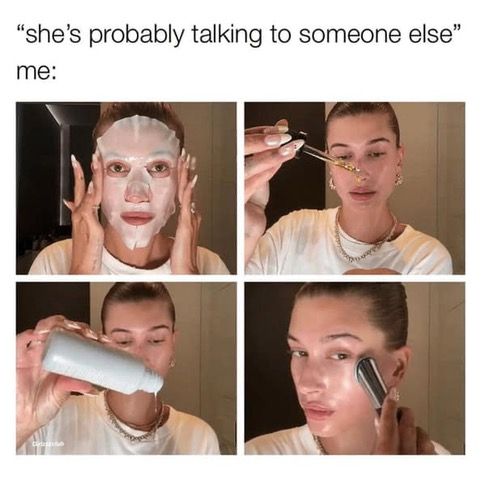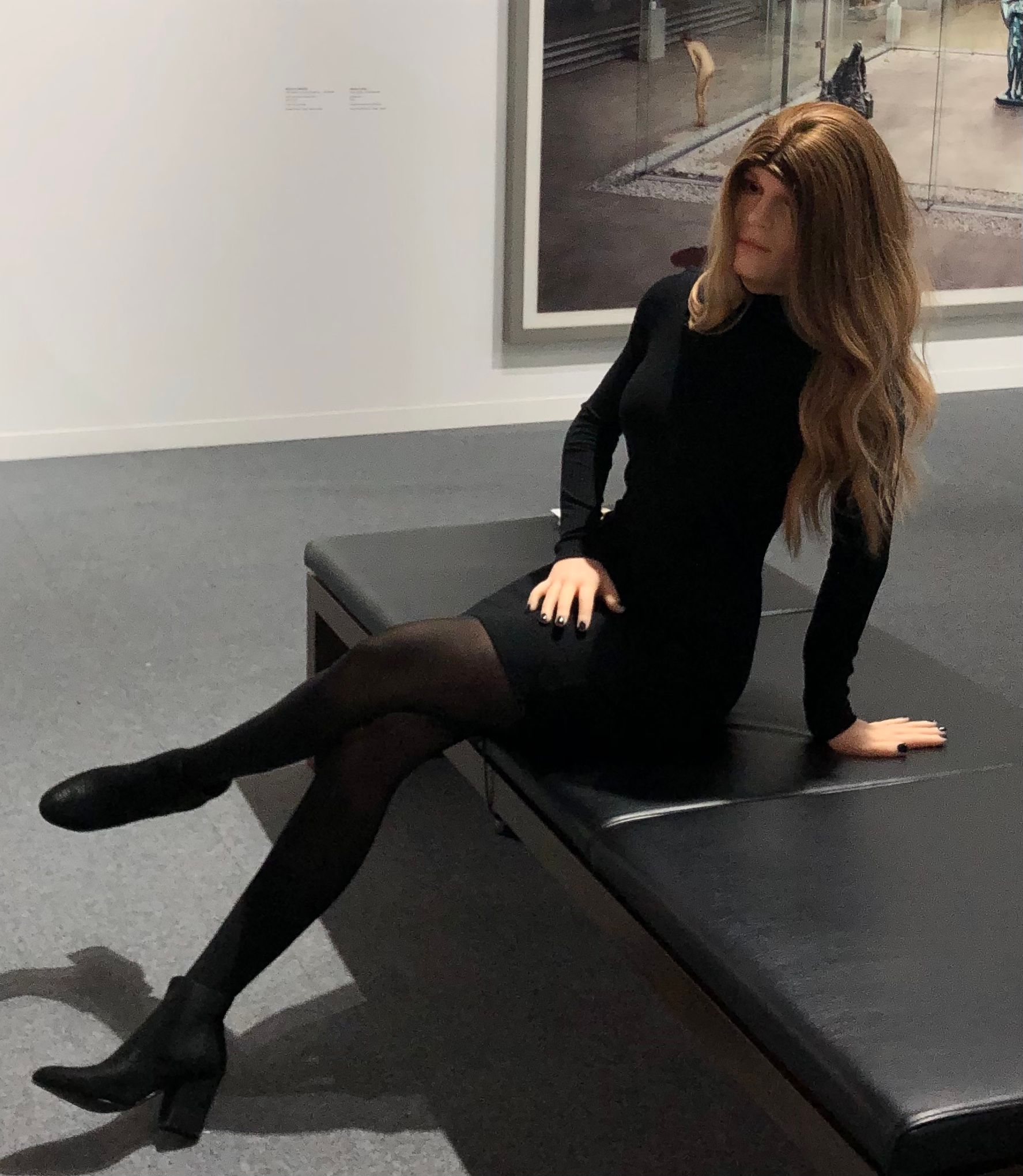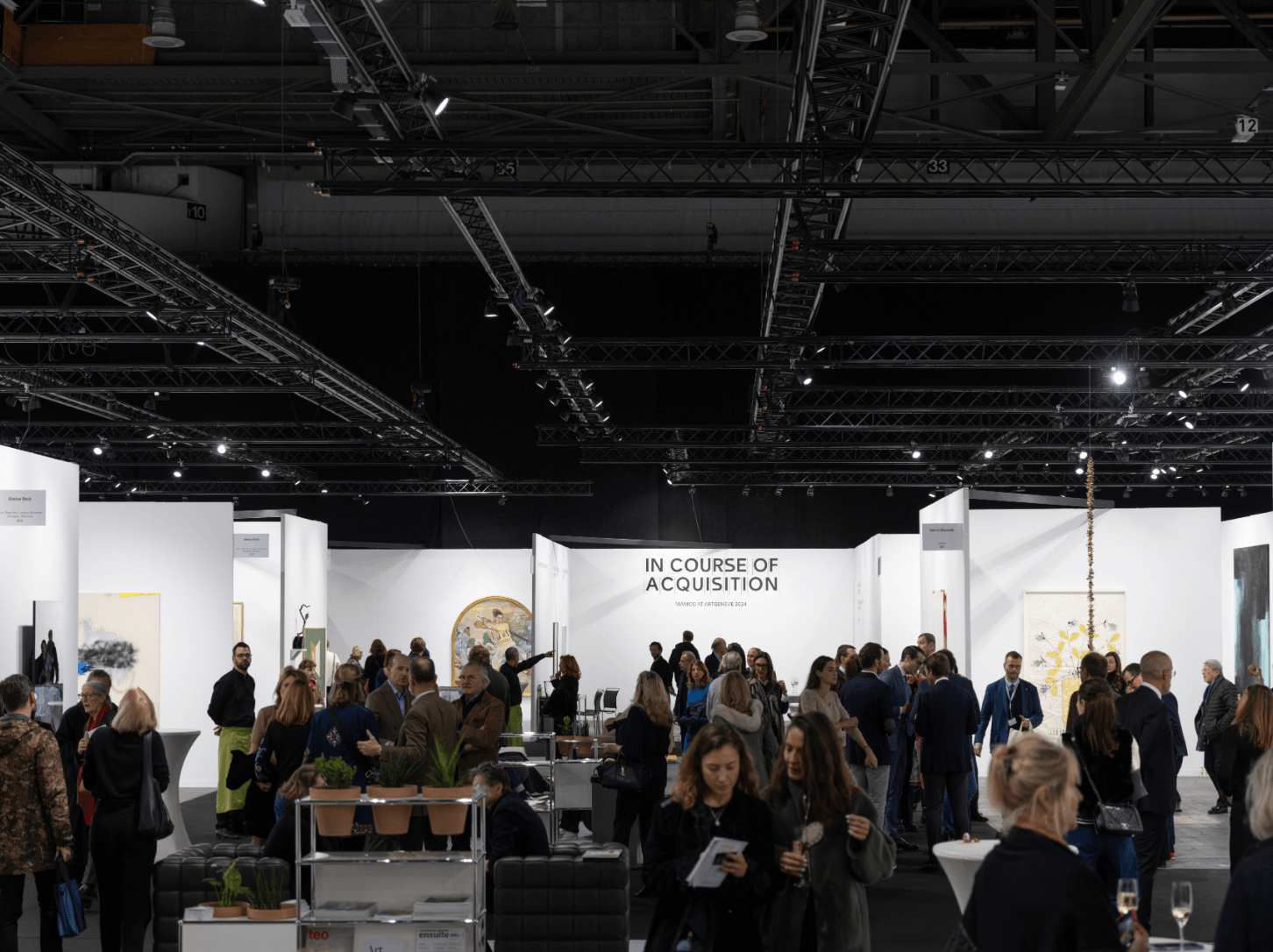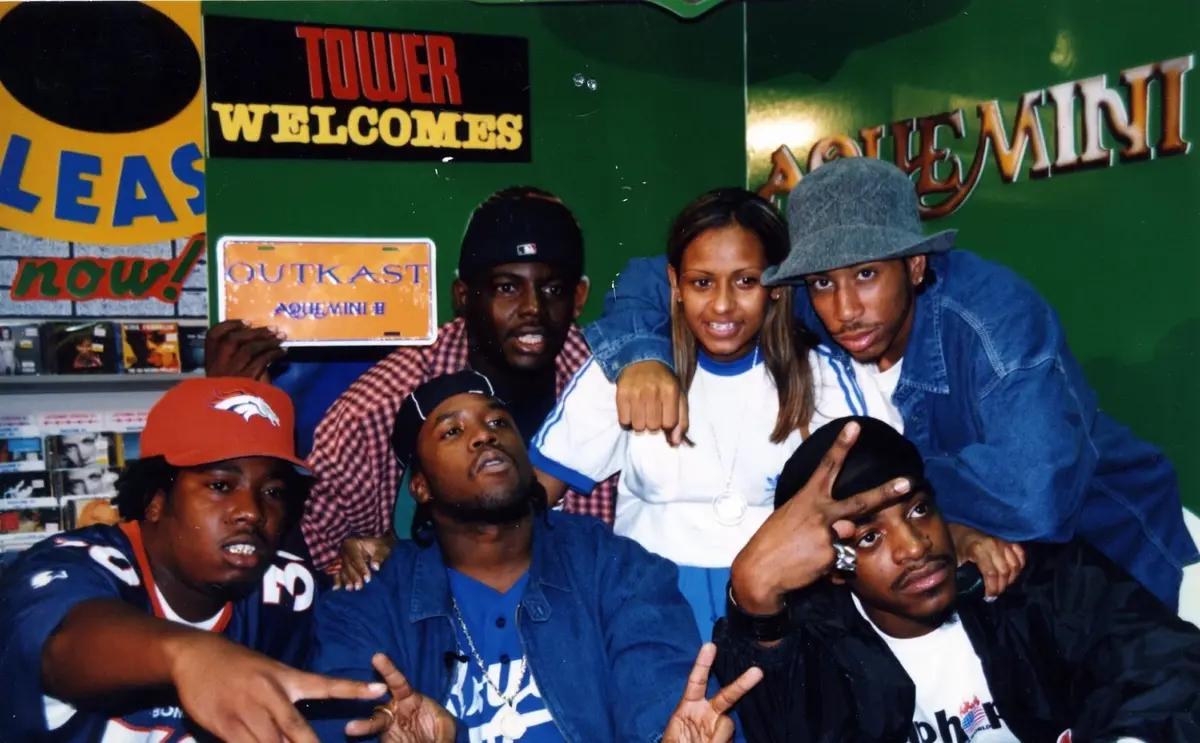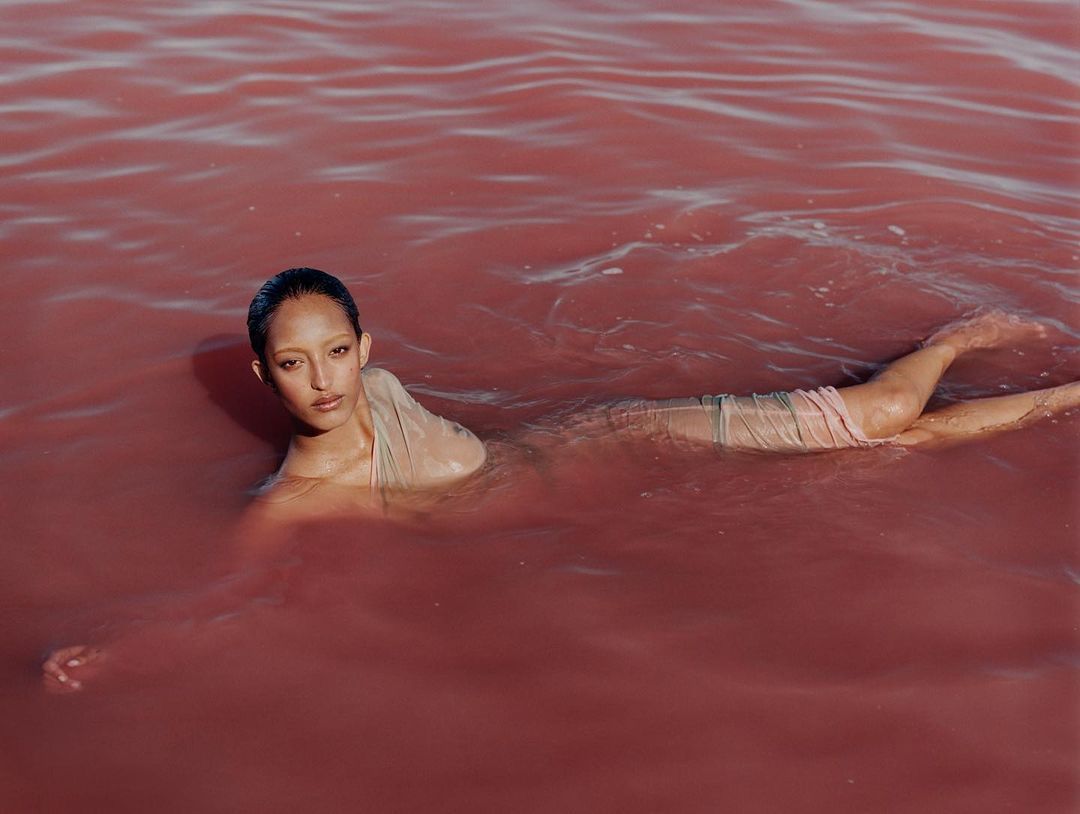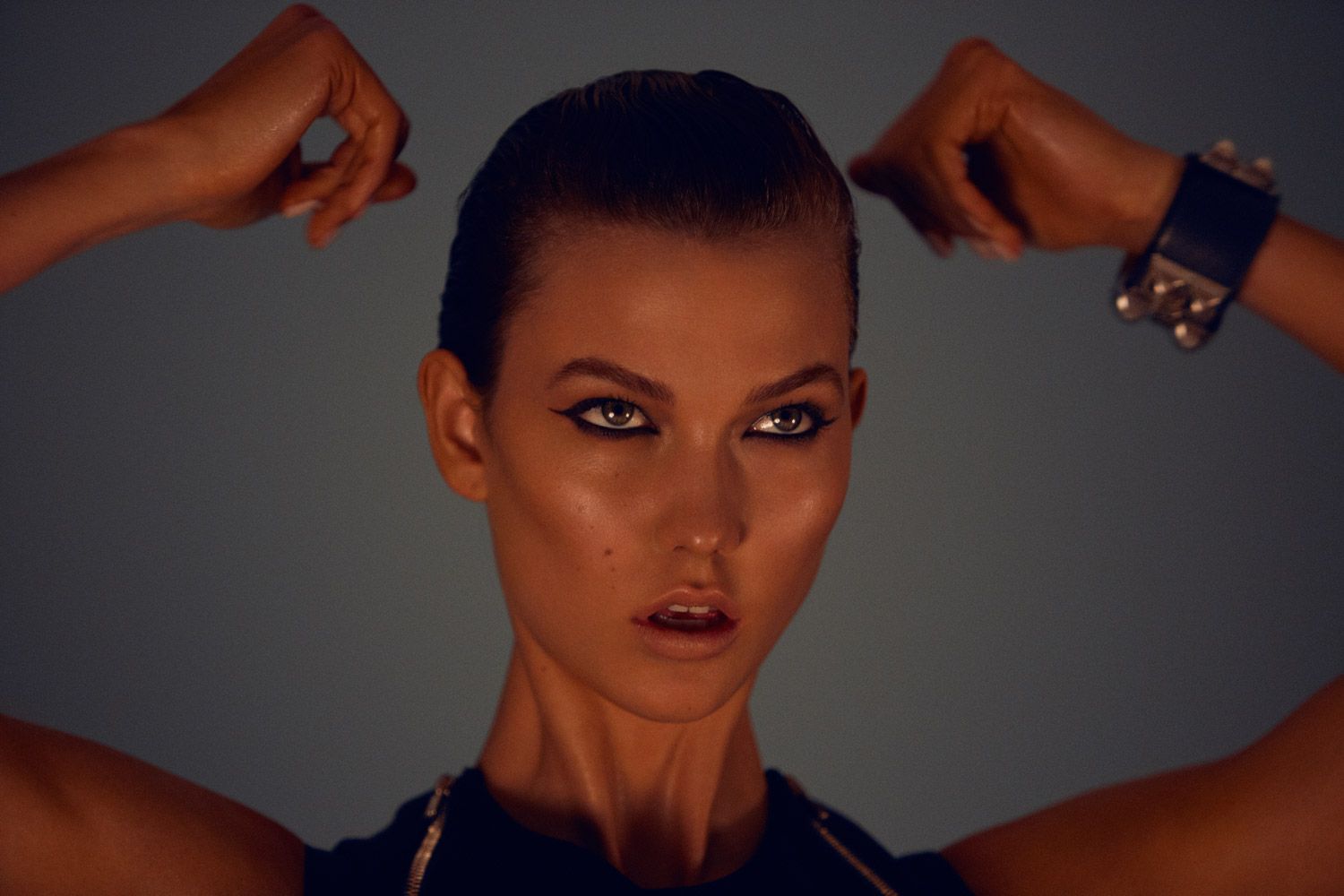Hardcore Wellness: Why Anti-Aging Doesn't Exist
|Claire Koron Elat
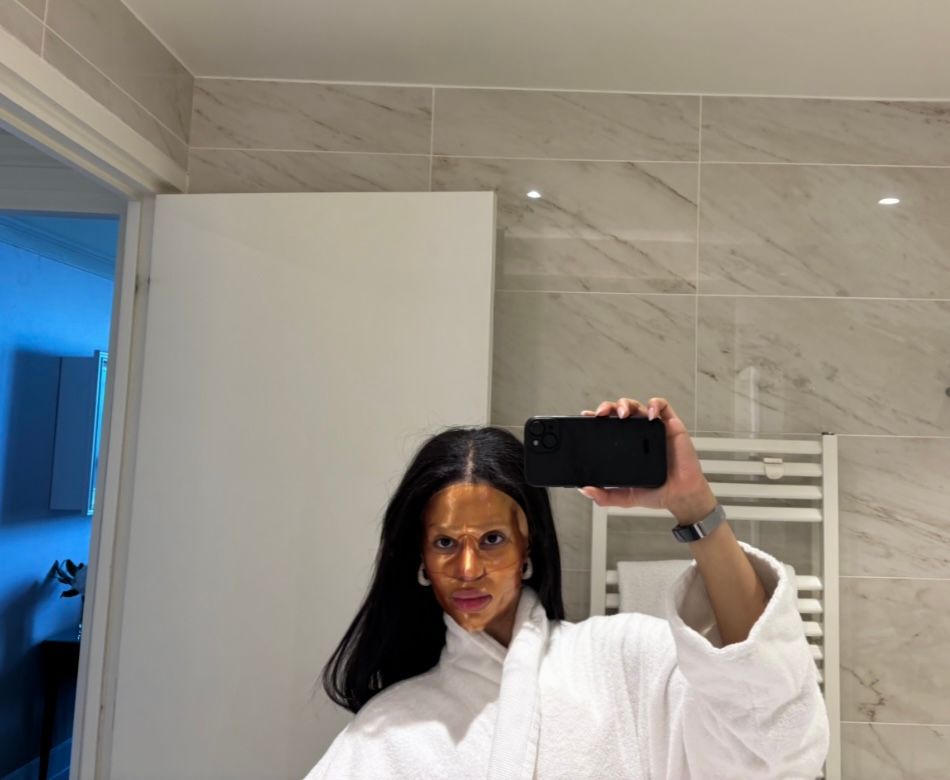
Wearing the Augustinus Bader Hydrogel Face Mask with TFC8®
When I sat with Christiane Werron—Executive Director of Global Education & Spa at Augustinus Bader—over lunch at the Hotel Barrière L’Hermitage in La Baule, she told me about a conversation she recently had with a private client. Werron—who travels around the world to educate about Augustinus Bader’s scientific skincare and to open the brand’s new signature spas—was asked by a woman in London if Werron could also give a class for her daughter and her friends. As the woman’s age was not clearly identifiable—surely thanks to good skincare—Werron asked for her daughter’s age. The woman responded: 12.
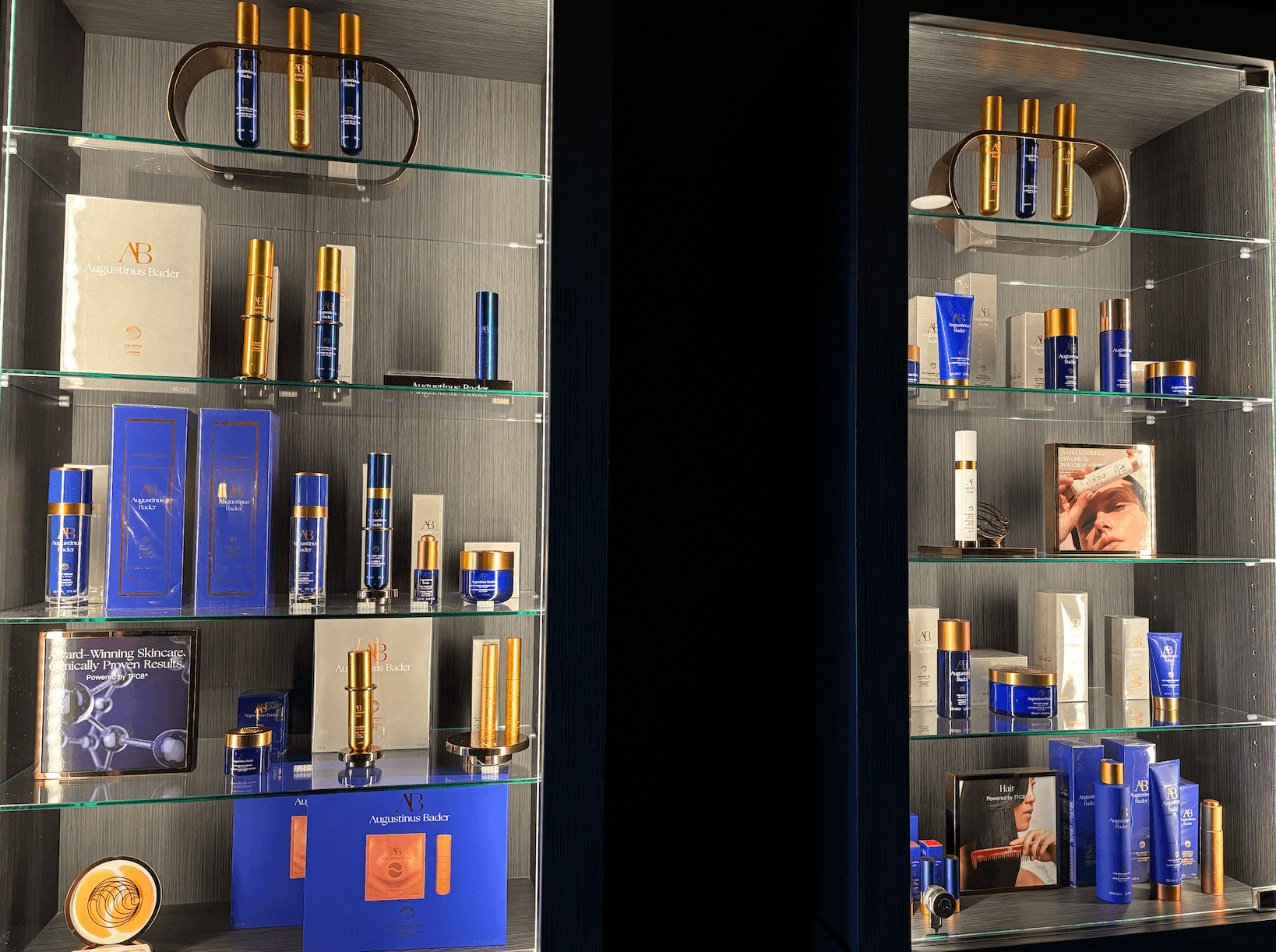
A skincare cabinet every girl dreams of
We seem to have reached a stage in our age of hyper-consumerism, where even 12-year-olds are convinced that they need to use Retinol serums and laser treatments, when all you need at this age is a good hydrating cream. Werron is of the same opinion and openly addresses the absurdity of the concept of “anti-aging” as well as the other skincare trends that have taken hold.
In her latest edition of Hardcore Wellness, Koron Elat talks to Werron on the occasion of Augustinus Bader’s recent launch of the new The Elixir Serum and spa in La Baule, to unpack why anti-aging is a flawed concept, how longevity is not about external treatments but rather internal alignment, and what wellness truly means.
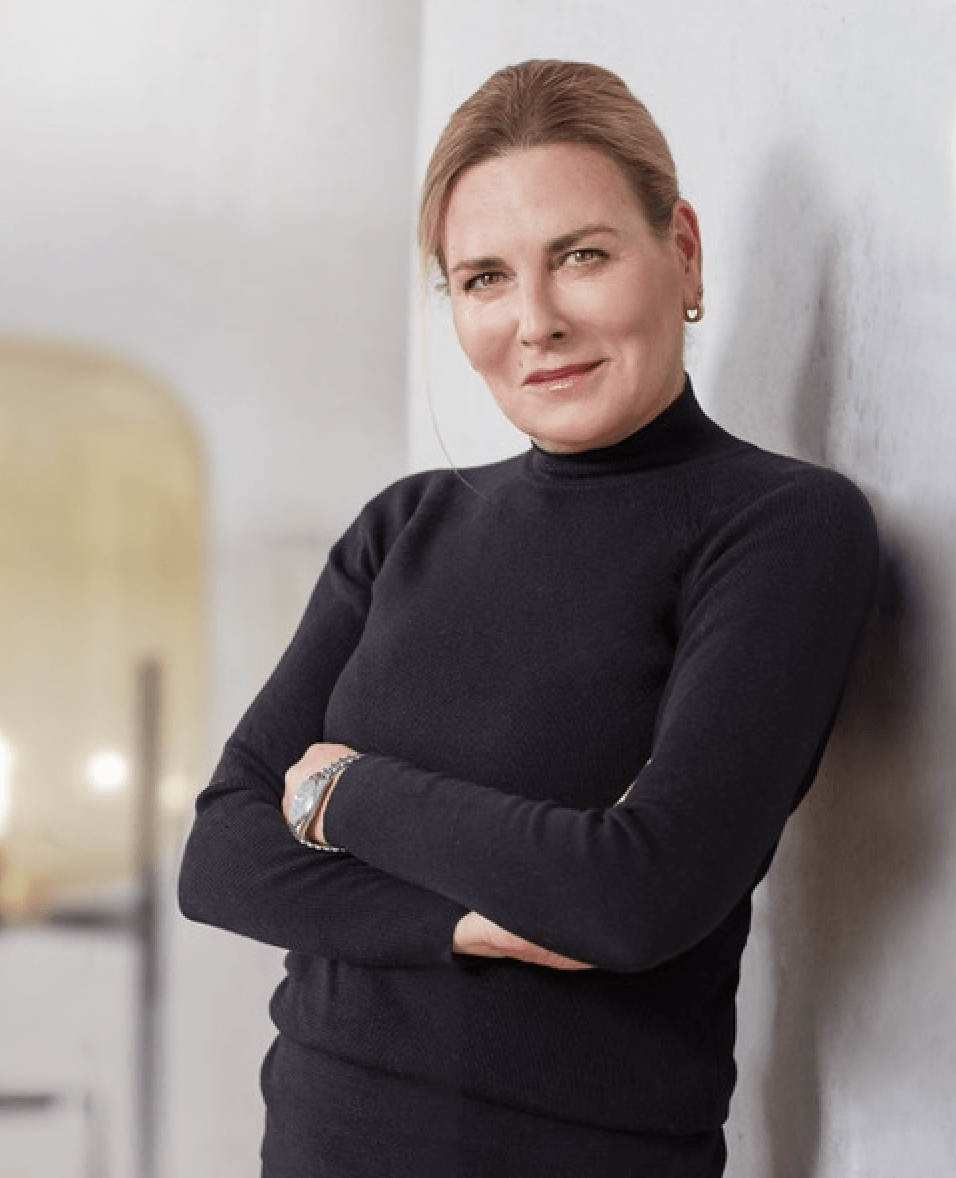
Christiane Werron, Director of Global Education & Spa of Augustinus Bader
CLAIRE KORON ELAT: The general concept of beauty has drastically changed in the past years—as has the way we understand it. And while the wellness and beauty industries are both accelerating in their relevance, some people prefer to talk about well-being rather than wellness.
CHRISTIANE WERRON: First and foremost, I believe we all need to focus on how important it is to be healthy, and that includes having healthy skin. Over the past few years, we’ve somewhat lost sight of what truly has value, in the literal sense, and what doesn’t.
That’s why our approach is to support personal beauty, essentially helping you become the best version of yourself through skincare. Not just with masks you put on that cover everything up—though those exist too—but with formulations that genuinely activate and support your skin’s potential. This is achieved through our TFC8® and carefully selected ingredients. Our goal is to awaken, strengthen, and reinforce what’s already within you. That’s one of our core values.
If I apply this thinking to the modern world, I believe it’s equally important to not lose focus on the environment that surrounds you. Everything related to our ecological footprint is also a fundamental part of our brand ethos. And when you value all of that, it naturally leads to a different idea of beauty; one that has nothing to do with the artificial ideals of the past. I think people are beginning to realize how important it is to value other aspects of life.
That might sound a bit general, but it’s actually a key point: activating the body’s self-healing powers, supporting inner beauty, and using the tools we have to bring out the best version of yourself. That’s what we envision for the future, and what we’ve already begun doing.
CKE: Speaking of superficial facial masks, you would immediately think about more invasive treatments. Are you an advocate for very invasive procedures, like laser treatments?
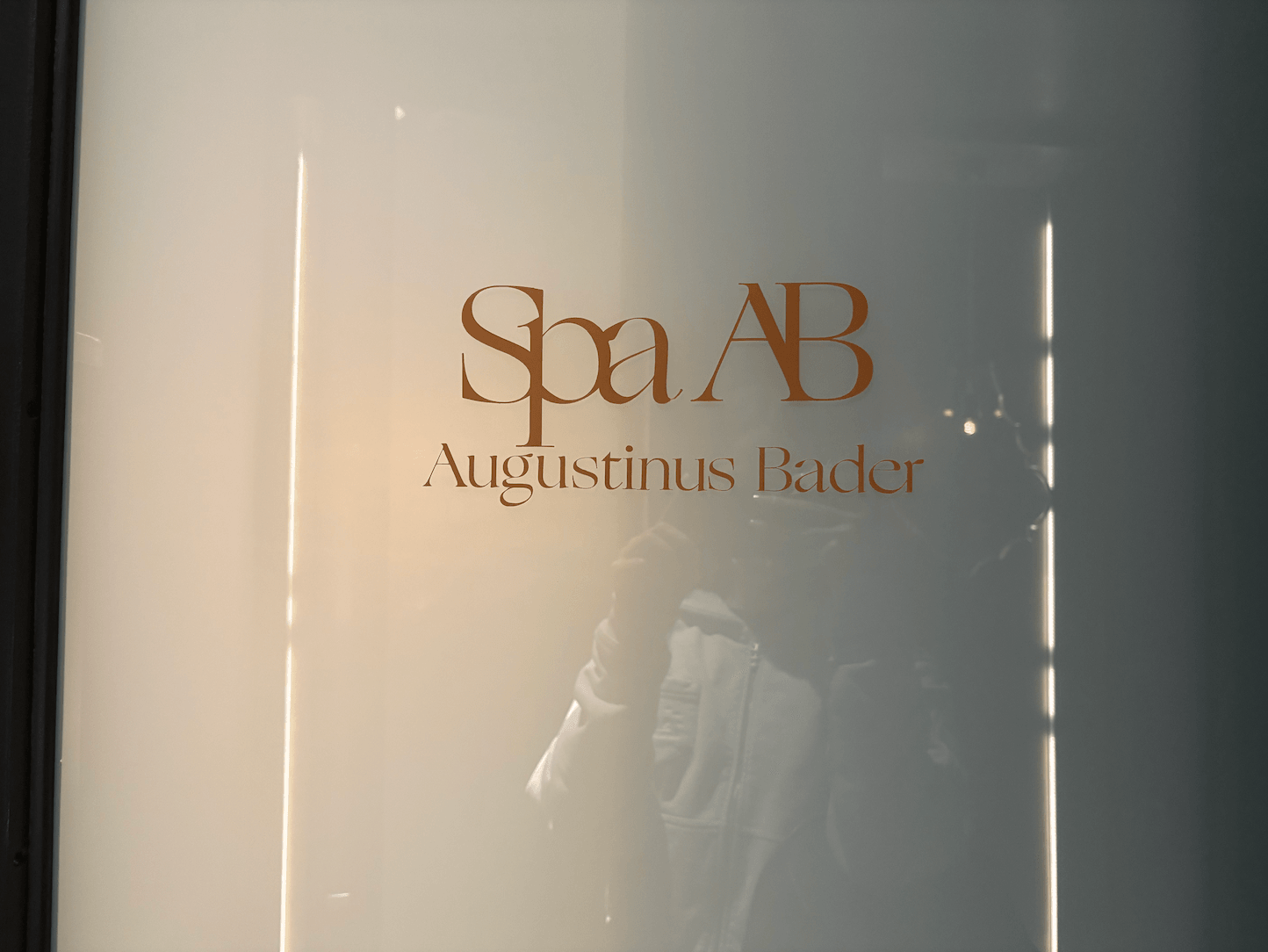
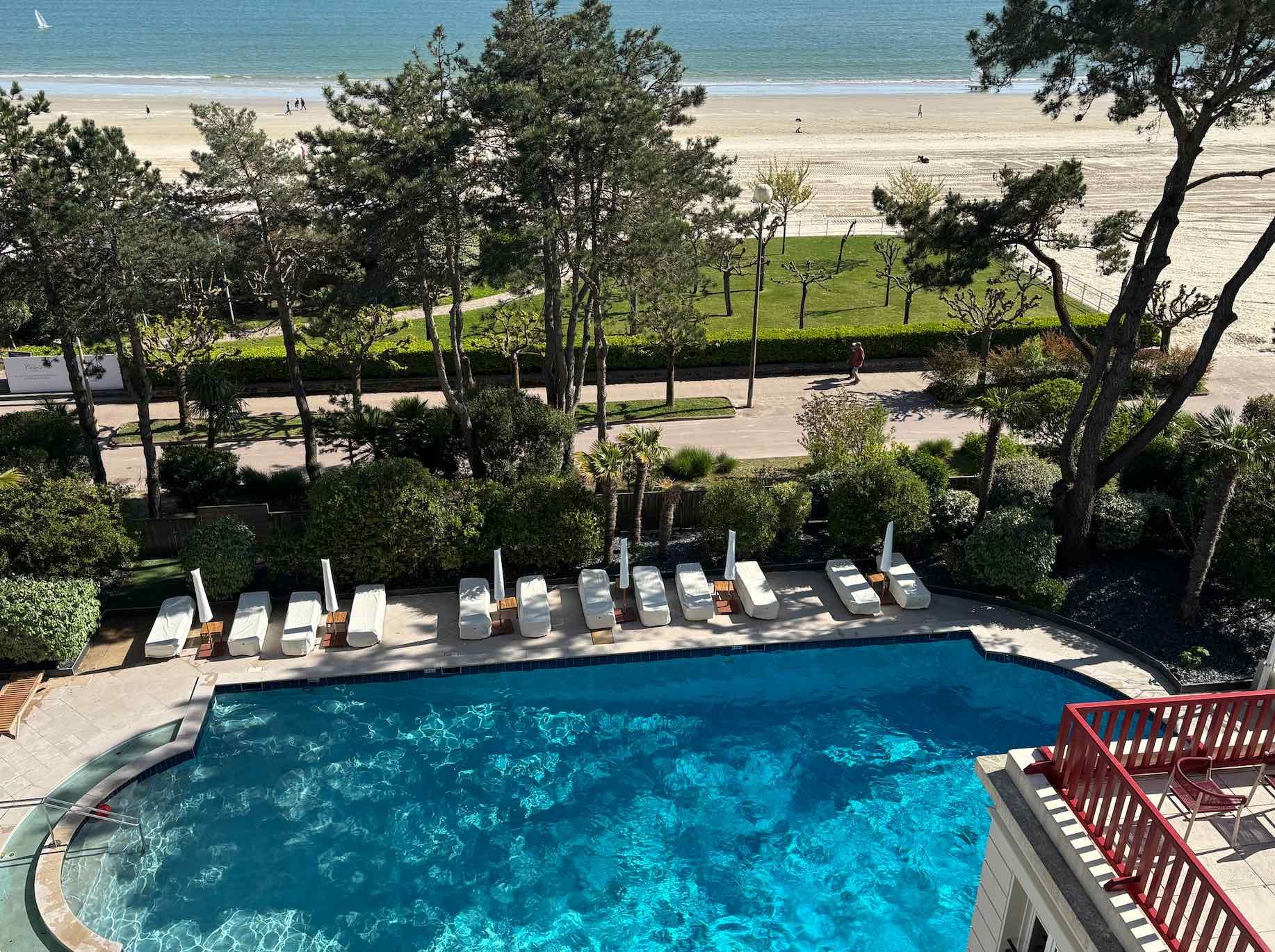
The new Augustinus Bader signature spa at the Hotel Barrière L’Hermitage in La Baule
CW: Well, it always depends on the individual case. If someone has struggled with severe acne their whole life and has deep scarring, then sometimes the only effective solution is to use invasive—even highly invasive—treatments. But if I see someone with beautiful, velvet-like skin who chooses aggressive treatments just to counteract the natural aging process, then I think that’s a mistake.
Invasive methods only make sense when there are no other options left. That’s my personal belief. In today’s world, we need to pause and reflect on the values we carry within us, and support those values in the most conscious and responsible way we can. That’s really the core message I’d like to send.
CKE: In the field you’re in, anti-aging is such a dominant topic, especially considering how facelifts are trending again. You said you don’t even like using the term “anti-aging.”
CW: Exactly, because “anti-aging” doesn’t actually exist. The term literally means “against aging.” While there’s a lot we can do to support the aging process, let’s be honest, if I go to a plastic surgeon to get a facelift, and they pull my skin back to reduce sagging, that has nothing to do with the actual quality or health of my skin.
And if, on top of that, I fill my face with toxins but I’m fundamentally a bitter or unhappy person who no longer sees the beauty in the world, well, then all those treatments won’t do much good. You know?
To me, it’s about approaching this topic holistically. If you know Professor Bader, you’d know he’s a very grounded person. He never talks about anti-aging; he talks about skin health. He says, “If you have healthy skin, you’re a happy person.” And when you project that healthy skin outward, it’s something that others pick up on. And when that’s combined with the right mindset and aligned values, it creates a kind of radiance, one that no plastic surgeon in the world can give you.
CKE: So, we’re really talking about a long-term and holistic approach here. How would you define longevity?
CW: It’s about enabling the longevity of our internal physiological processes, supporting them and slowing down aging, especially premature aging. If we succeed in doing that, then the natural outcome is a significant slowing of the overall aging process.
And, by the way, we live here on planet Earth. We have to accept that we’re born, and one day we will go. That’s it. “The Circle of Life”—like in The Lion King. It may sound a bit simplistic, but it’s true: spring, summer, fall, winter. Blooming, peaking, slowly fading, and then the end. That’s part of the life cycle, and we need to see it for what it is.
The goal isn’t to live to be 120 and spend 40 of those years seriously ill. The real aim should be to live as long as possible while staying as healthy as possible. That can be hard to appreciate when you’re still in the first third of your life. You’re not yet thinking about the last third. But to me, that’s a really meaningful mindset: to live long and live well. And if I combine that goal with a conscious mindset, then I believe it becomes unstoppable.
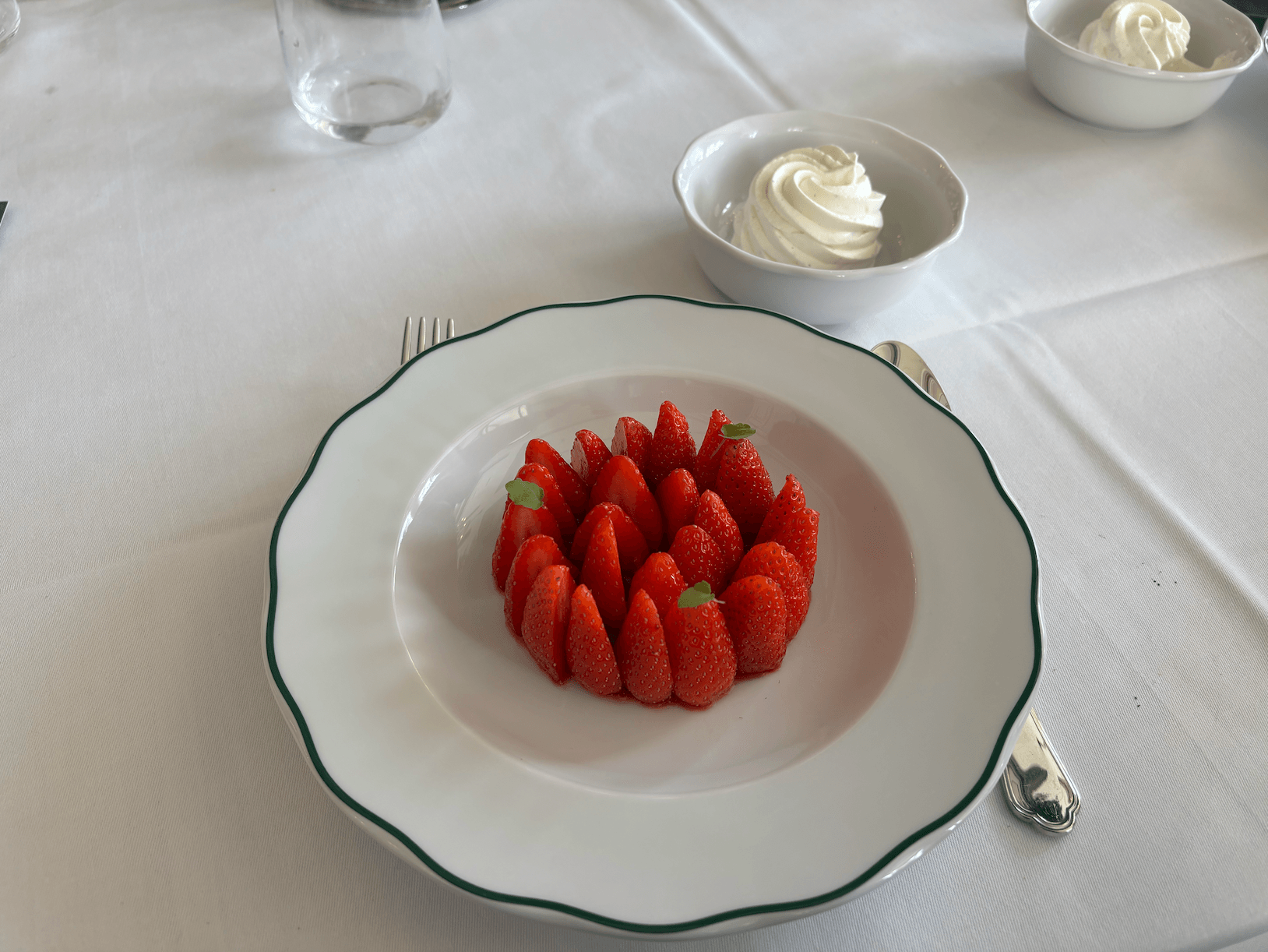
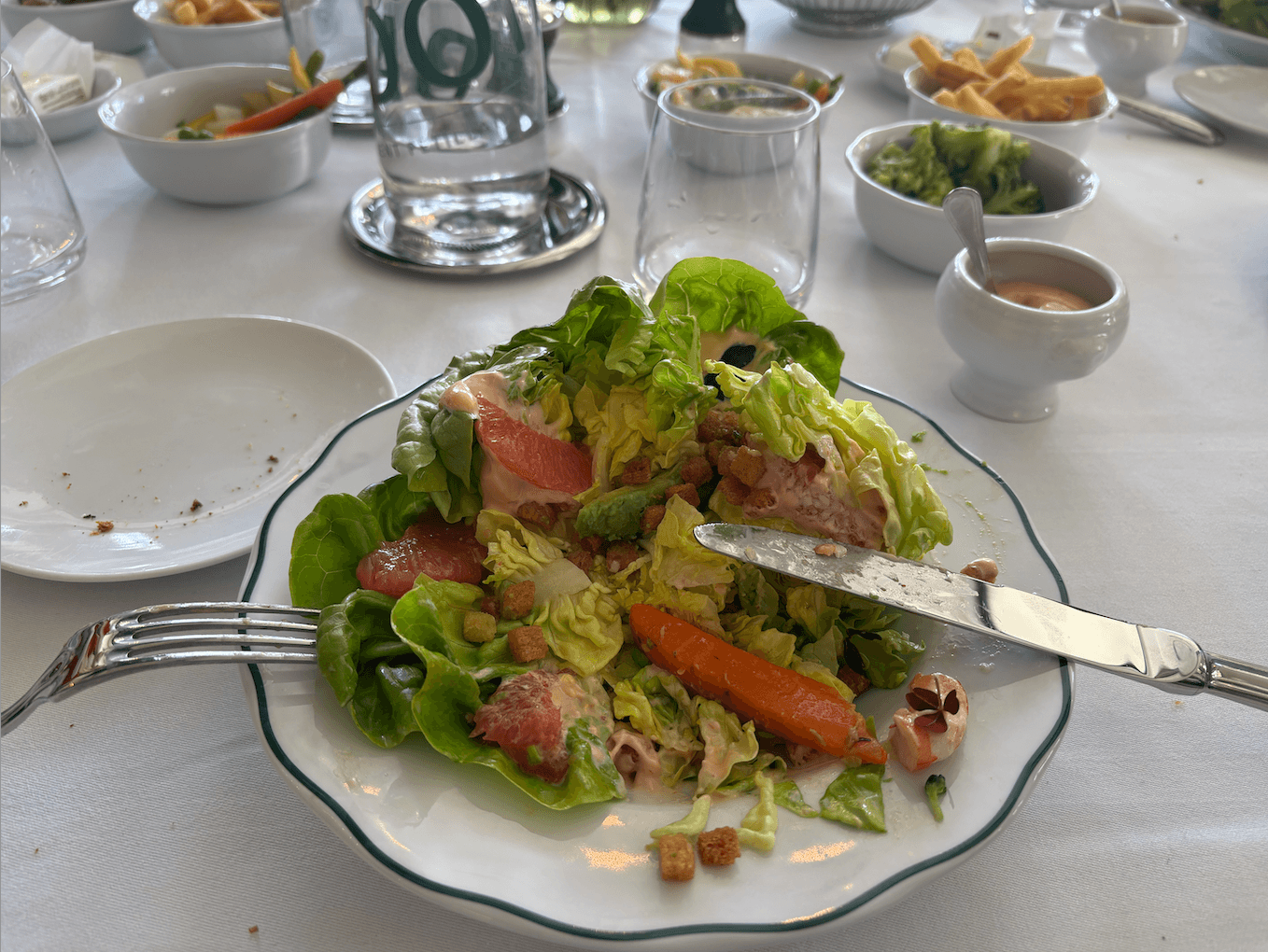
Because skincare is also about what you put inside of your body
CKE: You mentioned that Augustinus Bader advocates a “less is more” approach. What would you say about people who promote the opposite, thinking of 12-step skincare routines, for example?
CW: We need to understand that the skin is a living organ. And, like any living organ, it should be supported with tools that meet its current needs; not by following a routine prescribed by someone who’s never seen you, and certainly not by following something that’s meant to be the same for 100,000 or a million followers. Common sense alone should tell us that’s not realistic.
For me, it’s always about personalization. And sometimes I can achieve more with three targeted products than with 15, which might work fine for a girl in Korea, but that doesn’t mean it’s right for me.
Now, I’m not trying to dismiss or shame 12-step skincare routines. What I’m really advocating is that we take a moment to reflect and ask ourselves: What does my skin need right now? What would actually do it good? And then support it accordingly. And to be clear, it’s not even the influencer imposing it. We’re the ones choosing to accept it. That’s the real issue.
CKE: Nowadays, consumers are getting younger and younger, buying products that they might actually not need at their age.At what age should we think about prevention?
CW: In preventive medicine, which is Professor Bader’s background, it’s always about practicing prevention. Good prevention helps ensure that later on, you’re not watching “the child fall into the well,” as you say in German. And once it’s fallen into the well, it’s often too late, honestly. So, when it comes to prevention, I’d say: the earlier, the better.
But what does prevention mean? Prevention also means eating healthily, having a good mindset, getting outside into nature. It also means being aware of your surroundings and emotions.
If we’re talking specifically about skincare, then prevention means doing things for your skin that don’t overly trigger or challenge it. That means starting early with support—hydration, for example, gentle ingredients, non-invasive measures. The other stuff can come later, when a wake-up call is needed. The older you get, the more effort you have to make. The younger you are, the more you can focus—as you rightly say—on prevention. But that doesn’t mean using a sledgehammer to crack a nut.
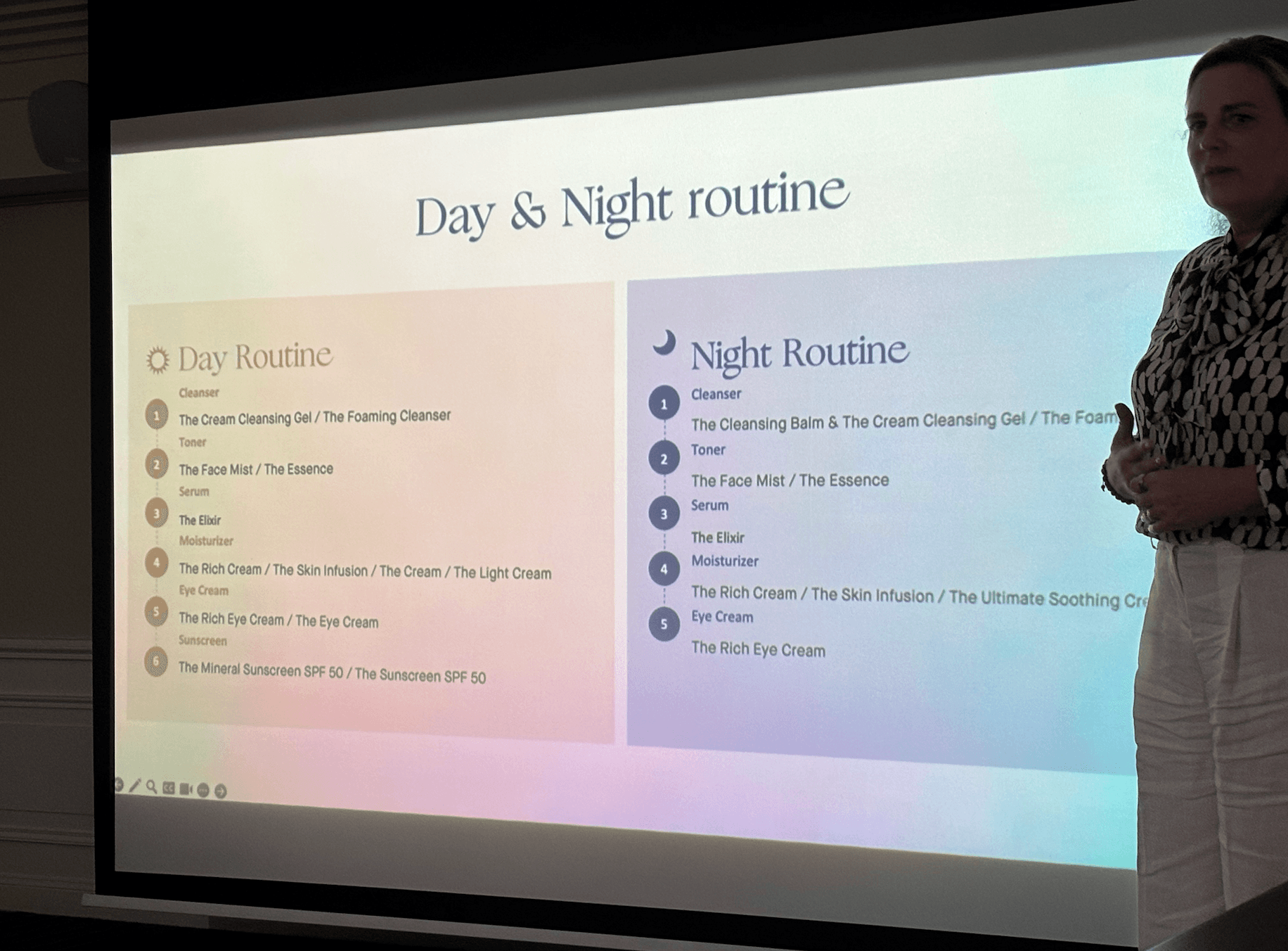
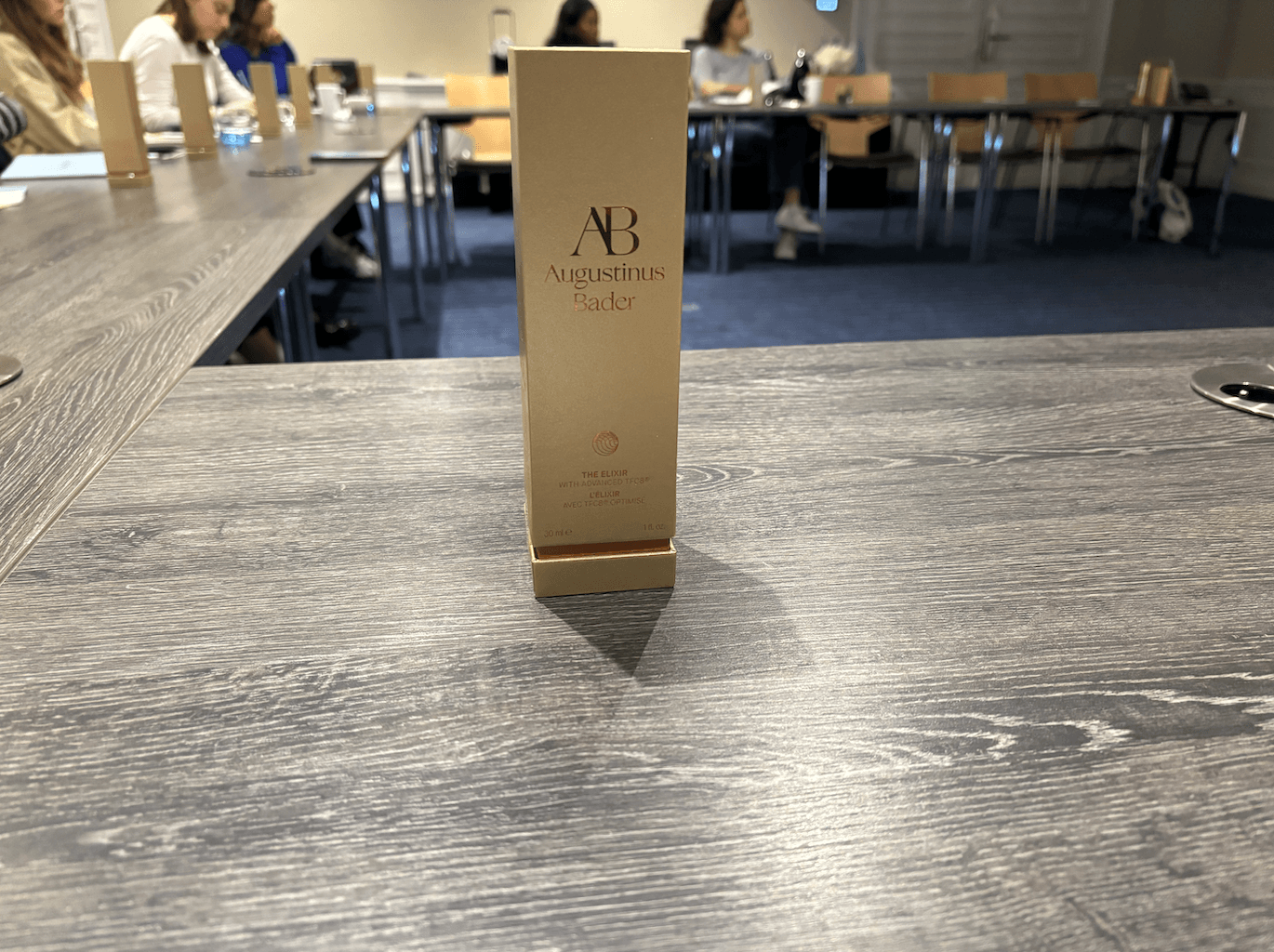
Christiane giving us a presentation about the newly launched Augustinus Bader The Elixir Serum and the perfect skincare routine
CKE: Are there any products you would not recommend at all?
CW: Yes, well, I’d say this: I think the most important thing in any product is the attempt to avoid as many chemical stabilizers and synthetic additives as possible. Anything the skin can’t “translate” into something positive shouldn’t be in a skincare product. A skincare product should be designed to be biocompatible, to give the skin what it can take and turn into a positive effect. We shouldn’t forget that the biological intelligence of the skin as an organ system is there—unless there’s a genetic defect, which is another story. But I’m talking about the average population.
So, I always warn against over-concentration.“The dose makes the poison.” High concentration isn’t always necessary—what matters is continuity. Consistency in use is the key. If you have beautiful, soft, delicate skin, anything that is overly aggressive and causes redness or extreme effects—those things are absolutely excessive and counterproductive.
CKE: And what made Augustinus Bader decide to expand from skincare to also have signature spas?
CW: That was the vision of our CEO, Charles Rosier, who traveled a lot around the world. He wanted to see the product in the best spas globally. Because experiencing a product as part of a spa journey has a completely different impact than buying it at an airport counter or in a department store. No matter how luxurious the counter is, trying something for yourself and having that before-and-after experience has a much stronger effect.
That’s why spas are a small but very important niche in our distribution. We treat it with great care. And it will never be mass-market—it will always be select, special places. Places with heart, passion, and of course quality.
In her column Hardcore Wellness, Claire Koron Elat looks at wellness as a phenomenon and industry, as well as at its increasing, accelerated relevance for the creative industry. As wellness has turned into an aesthetic with an ecosystem of sub-genres, the question of how this development reflects the general absurdity of contemporary culture arises. Hardcore Wellness focuses on interviews with experts in the field.
Credits
- Text: Claire Koron Elat

